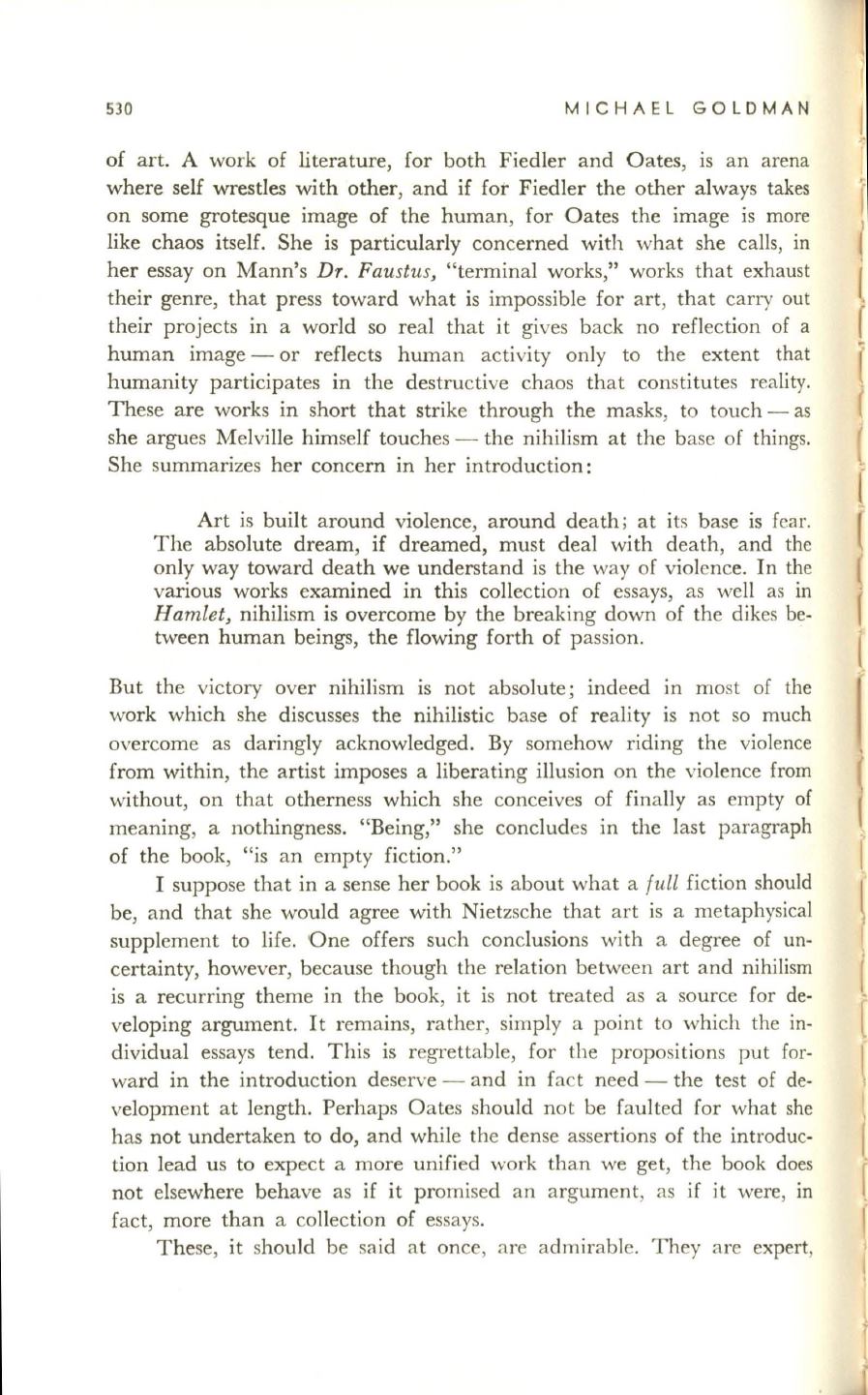
530
MICHAEL GOLDMAN
of art. A work of literature, for both Fiedler and Oates, is an arena
where self wrestles with other, and if fot Fiedler the other always takes
on some grotesque image of the human, for Oates the image is more
like chaos itself. She is particularly concerned with what she calls, in
her essay on Mann's
Dr. Faustus,
"terminal works," works that exhaust
their genre, that press toward what is impossible for art, that carry out
their projects in a world so real that it gives back no reflection of a
human image - or reflects human activity only to the extent that
humanity participates in the destructive chaos that constitutes reality.
These are works in short that strike through the masks, to touch - as
she argues Melville himself touches - the nihilism at the base of things.
She summarizes her concern in her introduction:
Art is built around violence, around death; at its base is fcar.
The absolute dream, if dreamed, must deal with death, and the
only way toward death we understand is the way of violence. In the
various works examined in this collection of essays, as well as in
Hamlet,
nihilism is overcome by the breaking down of the dikes be–
tween human beings, the flowing forth of passion.
But the victory over nihilism is not absolute; indeed m most of the
work which she discusses the nihilistic base of reality is not so much
overcome as daringly acknowledged. By somehow riding the violence
from within, the artist imposes a liberating illusion on the violence from
without, on that otherness which she conceives of finally as empty of
meaning, a nothingness. "Being," she concludes in the last paragraph
of the book, "is an empty fiction ."
I suppose that in a sense her book is about what a
full
fiction should
be, and that she would agree with Nietzsche that art is a metaphysical
supplement to life. One offers such conclusions with a degree of un–
certainty, however, because though the relation between art and nihilism
is a recurring theme in the book, it is not treated as a source for de-
veloping argument. It remains, rather, simply a point to which the in-
dividual essays tend. This is regrettable, for the propositions put for-
ward in the introduction deserve - and in fact need - the test of de–
velopment at length. Perhaps Oa tes should not be faulted for what she
has not undertaken to do, and while the dense assertions of the introduc-
tion lead us to expect a more unified work than we get, the book does
not elsewhere behave as if it promised an argument, as if it were, in
fact, more than a collection of essays.
These, it should be said at once, are adm irable. They are expert,


